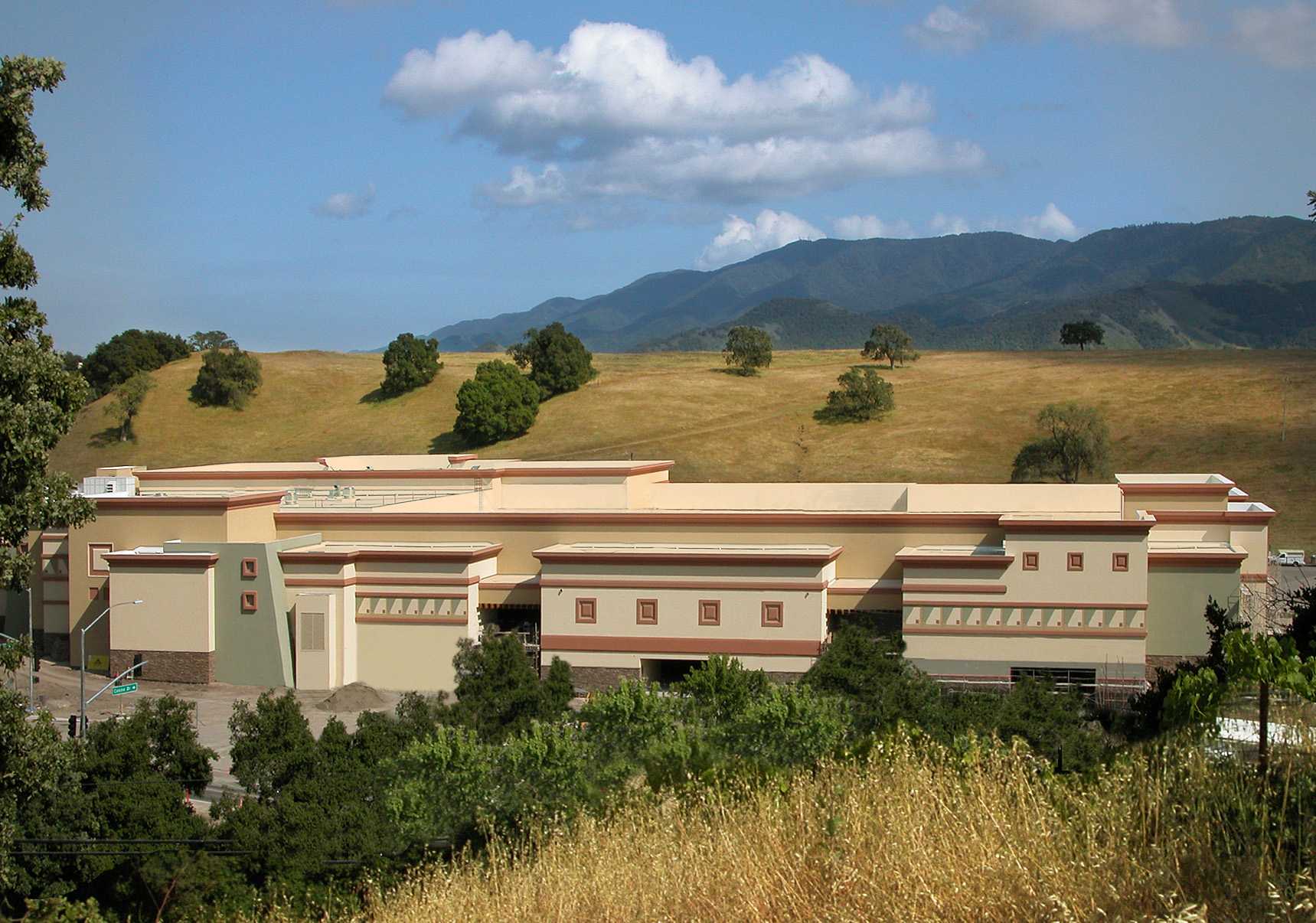 Another Stereotype of the Month entry:
Another Stereotype of the Month entry:
 Another Stereotype of the Month entry:
Another Stereotype of the Month entry:
By JOHN J. MILLER
January 27, 2006; Page W11
The fallout from the Jack Abramoff corruption scandal has all of Washington atwitter about congressional reform — everything from proposals to restrict travel perks and lunches with lobbyists to a potential shakeup in the Republican House leadership.
A subtheme of the controversy involves not a shakeup but a shakedown — of Indian tribes by Mr. Abramoff, who used casino cash to throw money around town as well as to line his own pockets richly. The common perception is that once again the white man has cheated the red man.
Perhaps a few expressions of sympathy are in order. Yet Indians would benefit much more from their own sweeping reforms. The Abramoff rip-off should be the least of their worries. The time has come to abolish reservations for the good of the people who live on them.
In the American imagination, grinding poverty is often a picture of urban slums full of broken families, abandoned apartments and back-alley drug deals. But an equally valid portrait might focus on the rural squalor of the rez. Of the 10 poorest counties in the U.S., seven of them are contained wholly or largely on reservations in Arizona, North Dakota and South Dakota.
Professional victimologists offer no shortage of explanations for this miserable state of affairs, but most of their analysis boils down to a core grievance: The federal government stole land from the Indians by conquest and treaty. Although Indians once were able to obtain title to specific parcels within reservations, this practice ended in 1934 — an act that essentially turned the reservations into not-so-little housing projects on the prairie.
The main problem with Indian reservations isn't, as some argue, that they were established on worthless tracts of grassland. Consider the case of Buffalo County, S.D., which Census data reveal to be America's poorest county. Some 2,000 people live there. More than 30% of the homes are headed by women without husbands. The median household income is less than $13,000. The unemployment rate is sky high.
Just to the east of Buffalo County lies Jerauld County, which is similar in size and population. Yet only 6% of its homes are headed by women without husbands, the median household income is more than $30,000, and the unemployment rate hovers around 3%. The fundamental difference between these two counties is that the Crow Creek Indian Reservation occupies much of Buffalo County. The place is a pocket of poverty in a land of plenty.
Maybe we should give land back to the rez-dwellers, so that they may own private property the way other Americans do. Currently, the inability to put up land as collateral for personal mortgages and loans is a major obstacle to economic development. This problem is complicated by the fact that not all reservations have adopted uniform commercial codes or created court systems that are independent branches of tribal government — the sorts of devices and institutions that give confidence to investors who might have the means to fund the small businesses that are the engines of rural economies.
Tribal ownership of the land is defended as the sine qua non of Indian sovereignty, which many activists regard as sacrosanct. It maintains the semifictional notion that the reservations are separate nations within the U.S. Although tribal members are American citizens, the reservations themselves are exempt from many federal and state laws. This is why so many Indian casinos have sprung up in areas that otherwise curb gambling.
Sovereignty also is understood as a form of cultural protectionism. Without it, goes the thinking, Indians eventually will follow the course of immigrant groups and assimilate into the great American melting pot. Intermarriage between Indians and non-Indians is pervasive, especially off the rez. More than half of all Indians already marry outside their race, according the Census. For racial purists who believe that the men and women of today's tribes should be preserved like frozen displays in natural-history museums, this is a tragedy akin to ethnic cleansing (albeit one based on love rather than hate).
Yet the real tragedy is that reservations, as collectivist enclaves within a capitalist society, have beaten down their inhabitants with brute force rather than lifting them up with opportunity. As their economies have withered, other social pathologies have taken root: Indians are distressingly prone to crime, alcoholism and suicide. Families have suffered enormously. About 60% of Indian children are born out of wedlock. Although accurate statistics are hard to come by because so many arrangements are informal, Indian kids are perhaps five times as likely as white ones to live in some form of foster care. Their schools are depressingly bad.

Even if casino revenues were able to address these soul-crushing problems — a doubtful proposition — most reservations are too isolated geographically to profit from big-dollar gambling. Yet the rise of the casinos may help point the way forward: Their ability to flourish contradicts the tenured Marxists in ethnic-studies departments who claim that communitarian Indian cultures aren't compatible with market capitalism. After all, it takes entrepreneurship to run some of the world's biggest casinos.
What's more, this modern-day entrepreneurship is part of a long tradition: Meriwether Lewis (of Lewis & Clark fame) described the Chinooks as "great hagglers in trade." I once visited Poverty Point, a 3,000-year-old set of earthen mounds in Louisiana; the museum there displayed ancient artifacts found at the site, including copper from the Great Lakes and obsidian from the Rockies. These prehistoric Americans were budding globalizers, and there's no reason why their descendants should remain walled off from the world economy.
When Indians enter our political conscience at all, it is usually in the most trivial of contexts: Should Florida State University call its sports teams the Seminoles? Does Leonard Peltier, a 1970s radical imprisoned for the murder of two FBI agents, deserve clemency? Isn't it a shame how Jack Abramoff bilked naïve tribal councils?
Yes, it is a shame. But it will be an even greater shame if reservations were to continue staggering along as they do now. The sleazy Abramoffs will always be with us. Must the failing reservations stick around as well?
Mr. Miller is the author, most recently, of "A Gift of Freedom: How the John M. Olin Foundation Changed America."
A Native replies
Rob, not only do I hope you post my response to Miller, I'm hopimg this will get published in the WSJ as well.
-----
Dear editors and readers of the Wall Street Journal,
I wish John J. Miller had even the most basic grasp of Native history. Or for that matter the most basic grasp of the rules of logic. While a lack of the first is unfortunately extremely common for journalists and commentators at the Wall Street Journal, at least the second should not be so rare.
Referring to the rezzes (reservations, for you latecomers to this continent) as projects, and then turning around and blaming the rezzes for Native poverty, is of course in line with the Blame the Victim mentality of many conservatives and "free market" theologians-disguised-as-economic-analysts. What Miller fails to graps is that, unlike inner city projects, most rezzes were and are homelands, and held in similar regards by Native peoples as Israel is to Jews.
I also wish he'd taken a look at the Mescalero rez. There he could see not just a successful tribe with its own lumber trade, mill, and ski resort, he'd see some of the lowest poverty and unemployment rates in Indian Country. Except for California, where tribes are so successful that Governor Terminator demonizes them as "special interests" and engages in race baiting, using stereotypes not too different from anti-Semitic ones.
Miller could have also looked at the Mississippi Choctaws, the second largest employer in Mississippi, exceeded only by the federal government and ahead of the state government.
Or the Ak Chin Tribe in Arizona, who pay for the fire and EMS services of the neighboring town with their successful tribal businesses. Or the Blackfoot, with their successful international bank modeled on the Swiss model. Or the...you get the point. So many reservations are so successful, the percentage of Indians living on reservations is on the RISE for the first time in more than fifty years. Conditions are so much better, many Indians are returning to the homeland where the job opportunities are so much better than off-rez.
Miller doesn't even have the excuse of distance. After all, the Pequots and their famous Foxwood Resort are practically in his backyard. Perhaps Miller is so culturally illiterate that he's never heard of all the world title boxing matches held there?
Really, Wall Street Journal readers deserve better than someone this amazingly ignorant, and not just on this issue. Deriding issues such as not just the Abrmaoff scandal, but "Indian" mascots (a contributing cause of high Native suicide rates) and the continuing imprisonment of the US's leading political prisoner Leonard Peltier as "quaint" shows a real lack of maturity.
Perhaps when Miller grows up, he might also learn to actually read up on issues before making a fool of himself in public again.
Dr. Al Carroll
Social & Behavioral Sciences Dept.
St. Phillip's College
San Antonio, TX

Rob's reply
Thanks, Al, but I don't think it's enough to point to the many successes of Indian gaming. Let's show Miller exactly where he's wrong:
Tribes aren't worried about the Abramoff scandal, except when right-wingers like Miller use it to bash them.
>> The time has come to abolish reservations for the good of the people who live on them. <<
The US already tried termination. It didn't work.
>> The main problem with Indian reservations isn't, as some argue, that they were established on worthless tracts of grassland. <<
They weren't? Well, there are now several hundred reservations scattered throughout the US. No doubt Miller has done a detailed analysis to prove the land on all these reservations is valuable rather than worthless.
>> Consider the case of Buffalo County, S.D., which Census data reveal to be America's poorest county. <<
Huh? Where's the detailed analysis? One case out of several hundred, even if that case is valid, doesn't prove anything.
>> Just to the east of Buffalo County lies Jerauld County, which is similar in size and population. <<
These counties both have about 2,000 people living in about 500 square miles. The populations are so small that one factory in Jerauld County could make all the difference—just as single casinos have transformed many reservation-based counties. In short, these counties are probably unrepresentative, which is probably why Miller picked them.
>> Maybe we should give land back to the rez-dwellers, so that they may own private property the way other Americans do. <<
The US already tried allotment. It didn't work. See Tierney: Federal Bureaucracies Caused Indians' Downfall for details.
>> This problem is complicated by the fact that not all reservations have adopted uniform commercial codes or created court systems that are independent branches of tribal government — the sorts of devices and institutions that give confidence to investors who might have the means to fund the small businesses that are the engines of rural economies. <<
Tribes haven't had the funds to adopt commercial codes or create court systems until recently. Gaming has provided such funds to many tribes, and they're starting to address these issues. That's an argument for continuing the process, not abandoning it.
>> It maintains the semifictional notion that the reservations are separate nations within the U.S. <<
Most tribes were sovereign entities before the US was formed. That suggests their sovereignty is as real as any political concept, not "semifictional."
>> Without it, goes the thinking, Indians eventually will follow the course of immigrant groups and assimilate into the great American melting pot. <<
Indians aren't immigrants, since they were here first. Unlike immigrant groups, many Indians don't want to assimilate. Unlike immigrants, they didn't choose to be a part of the US; the US was forced on them against their will.
>> For racial purists who believe that the men and women of today's tribes should be preserved like frozen displays in natural-history museums, this is a tragedy akin to ethnic cleansing (albeit one based on love rather than hate). <<
This is perhaps the stupidest statement in this screed. No tribe is trying to freeze itself like a museum display. Every tribe is fostering education, implementing technology, and encouraging development. They're moving into the 21st century while retaining their unique cultural characteristics, exactly like many other communities.
>> Yet the real tragedy is that reservations, as collectivist enclaves within a capitalist society, have beaten down their inhabitants with brute force rather than lifting them up with opportunity. <<
To repeat, tribes are pursuing economic development wherever possible. Ironically, when they do it through Indian gaming, the Wall Street Journal is the first to denounce them.
>> As their economies have withered, other social pathologies have taken root: Indians are distressingly prone to crime, alcoholism and suicide. <<
These problems have been present since the white man first began destroying Indian cultures. They aren't a function of "withered" economies. Reservation-based economies have never been better than they are now, so there's no decline.
>> Even if casino revenues were able to address these soul-crushing problems — a doubtful proposition <<
It's hardly "doubtful." Casino revenues are addressing these problems wherever tribes are pursuing gaming successfully. See Hard Evidence that Indian Gaming Works for details.

Marxists control Indian reservations?
>> Yet the rise of the casinos may help point the way forward: Their ability to flourish contradicts the tenured Marxists in ethnic-studies departments who claim that communitarian Indian cultures aren't compatible with market capitalism. <<
I'm not sure what "tenured Marxists" claim, but it's irrelevant to what's happening on reservations. Tribal leaders aren't Marxists, which is why they're pursuing economic development wherever possible.
>> These prehistoric Americans were budding globalizers, and there's no reason why their descendants should remain walled off from the world economy. <<
Yes, and they did it without setting up a system of private land ownership or assimilating into a homogenized melting pot. If they could do it then, they can do it now.
>> But it will be an even greater shame if reservations were to continue staggering along as they do now. <<
There's private land ownership in every pocket of poverty besides reservations. Why hasn't it made a difference in all the inner-city slums, for instance?
Apparently the "professional victimologists" are right. If you look at all the so-called "pockets of poverty," private land ownership is not what distinguishes them from their wealthier neighbors.
>> Must the failing reservations stick around as well? <<
While we're at it, why don't we demolish all the poverty-stricken US cities? Newark, Cleveland, Detroit, Buffalo, St. Louis...despite their participation in the capitalist system, they're clearly failing, so let's shut them down. Let's move their poor residents to Beverly Hills and other elite enclaves. There they can assimilate, mingle with the rich, and learn how to make money themselves.
Don't these cities prove that assimilation, land ownership, and capitalism have failed? Why are they all pursuing (re)development opportunities, just like tribes are, rather than giving up? After decades of abject poverty, aren't they just deluding themselves about their chances for success?
Naturally Miller doesn't argue along these lines. It's obvious why not: because it doesn't fit his right-wing agenda.
Miller's thesis is superficially plausible, but he hasn't begun to study the real causes of poverty in reservation and non-reservation "pockets of poverty." Until he does, beware of conservative calls for dismantling the reservation system. The white man stole the Indians' land once; don't let him do it again.
A correspondent replies (7/17/06)
"Anonymous" responds to the above:
Some comments about the comments. The author of the original screed is referred to as "author":
>> The US already tried termination (of reservations). It didn't work. <<
Did you actually mean EXtermination?
>> Tribes haven't had the funds to adopt commercial codes or create court systems until recently. <<
I've seen this in practice.
>> Most tribes were sovereign entities before the US was formed. That suggests their sovereignty is as real as any political concept, not "semifictional." <<
The author has a point, even if it might not be what he intended. The sovereignty of native Nations is not a real one as long as they are subject to the US federal government. Even though they USED to have it before conquest.
>> Indians aren't immigrants, since they were here first. Unlike immigrant groups, many Indians don't want to assimilate. <<
Good point. From a libertarian point of view, the government should have no interest in "Assimilating" cultures. Leave it to the people involved.
>> This is perhaps the stupidest statement in this screed. <<
I agree. I also know that "no tribe is trying to freeze itself like a museum display." I bet he thinks that all people on the reservation live in tipi's with totem poles in the front.
>> These problems [crime, alcoholism, and suicide] have been present since the white man first began destroying Indian cultures. <<
To some extent, they are problems with all societies, even pre-Colombian Natives (especially suicide) and modern "whites". Would the author have us give up Omaha, Nebraska as a failed enclave because white people commit crime, kill themselves, and drink there too?
They aren't a function of "withered" economies. Reservation-based economies have never been better than they are now, so there's no decline.
>> tenured Marxists in ethnic-studies departments who claim that communitarian Indian cultures aren't compatible with market capitalism. <<
The author does have a point here. The interpretations of Marxism just are not compatible with the real world, and that includes Native matters.
>> Yes, and they did it without setting up a system of private land ownership <<
Actually, many Natives did have private land ownership.
>> While we're at it, why don't we demolish all the poverty-stricken US cities? Newark, Cleveland.... <<
Such an excellent point. These cities are a failed experiment, right?
>> Until he does, beware of conservative calls for dismantling the reservation system. <<
I did not find him particularly conservative. Uninformed and simplistic? Certainly.
Thanks for your comments, anonymous.
The US tried extermination first. When that didn't work, it tried termination.
I meant a legal system of private land ownership, of course—with laws and deeds and so forth. I know some tribes recognized property rights.
Conservatives aren't particularly conservative today. They're launching unnecessary wars, expanding the size of government, and subverting our constitutional rights. If I were you I'd stick with "liberals" like Bill Clinton, who gave us eight years of peace and prosperity.
Related links
Should Indians cling to reservations?
The facts about Indian gaming
The facts about tribal sovereignty
|
. . . |

|
All material © copyright its original owners, except where noted.
Original text and pictures © copyright 2007 by Robert Schmidt.
Copyrighted material is posted under the Fair Use provision of the Copyright Act,
which allows copying for nonprofit educational uses including criticism and commentary.
Comments sent to the publisher become the property of Blue Corn Comics
and may be used in other postings without permission.